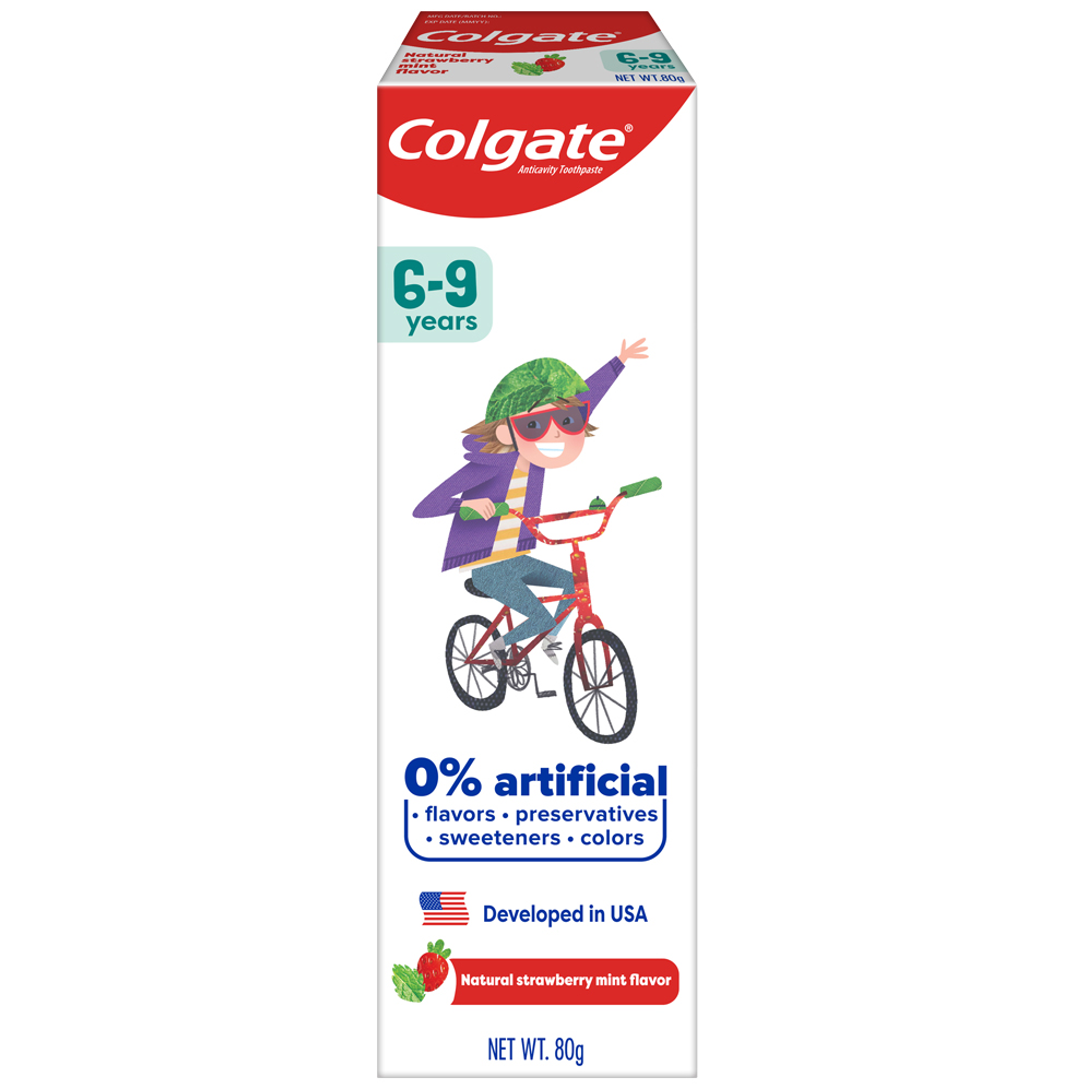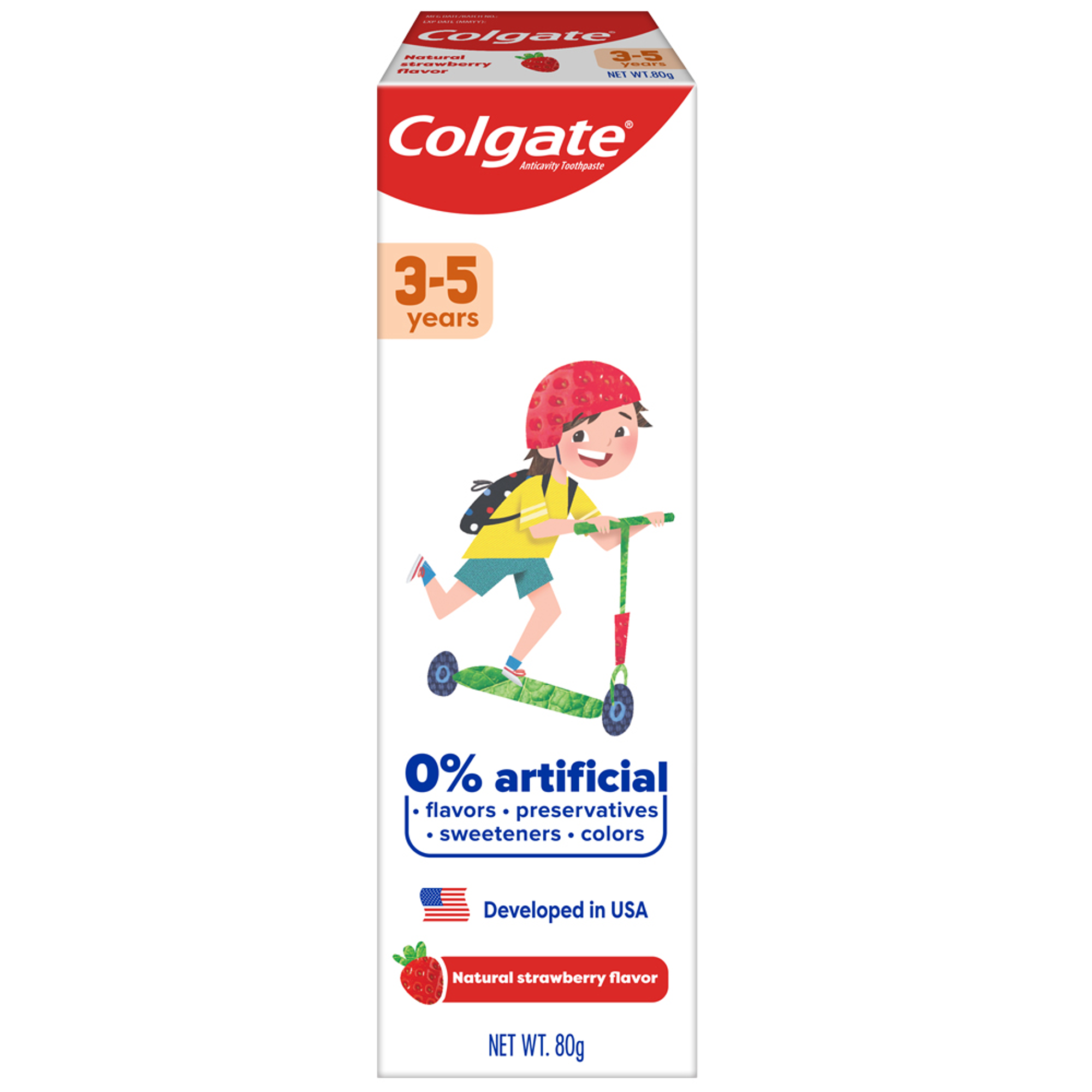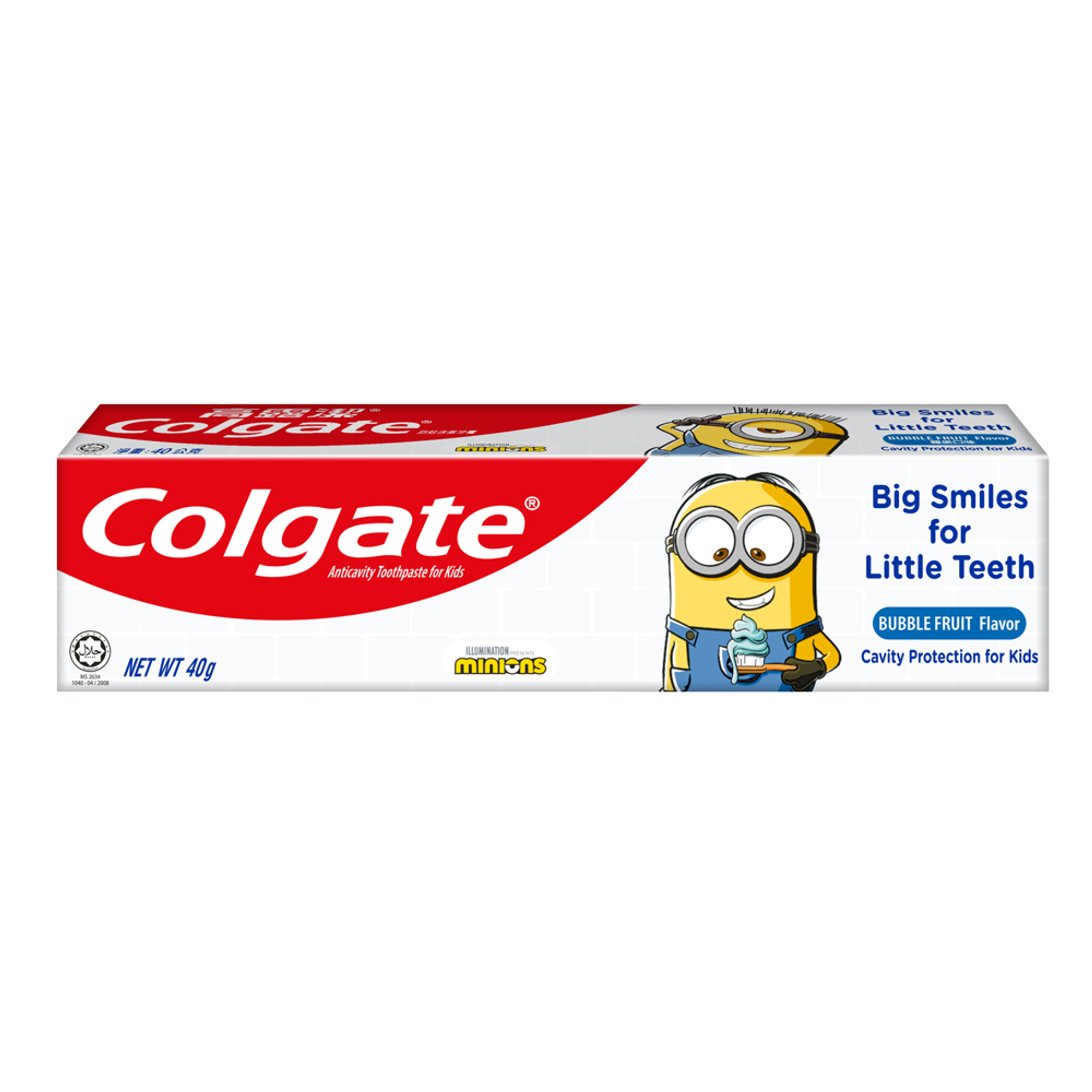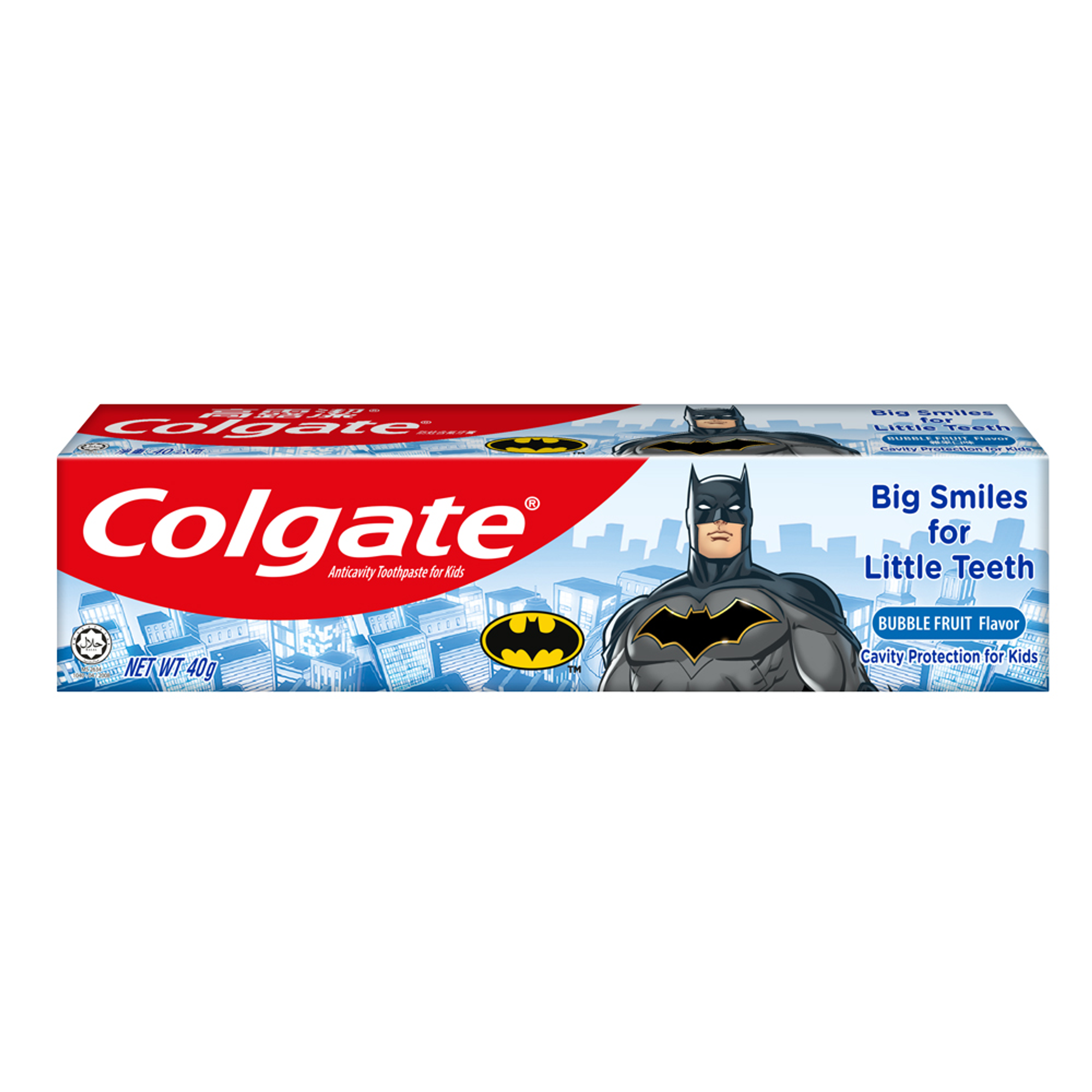-
-

FLUORIDE
Discover how stannous fluoride toothpaste prevents cavities and other oral health issues. Learn the key benefits of fluoride for teeth and its best uses.Fluoride plays a vital role in oral healthcare...

TEETH WHITENING
Teeth Whitening Serum for a Brighter, Confident SmileWho does not want whiter and brighter teeth? Thanks to the many teeth-whitening products available today...
-
Science & Innovation
- ORAL HEALTH ASSESSMENT
- Colgate® | Toothpaste, Toothbrushes & Oral Care Resources
- Oral Health
- Kids Mouthwash - What Parents Should Know | Colgate® SG
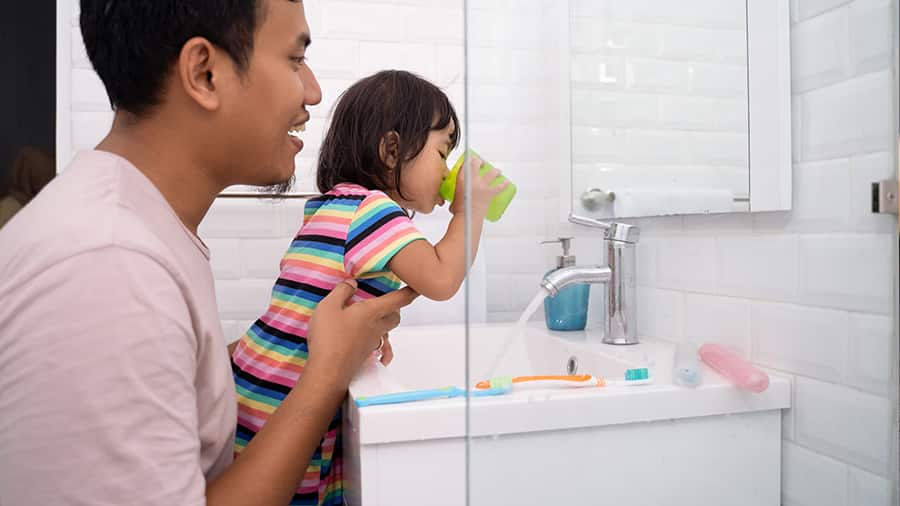

Just as there are foods for kids and foods for adults, there are kid-friendly oral care products distinct from their grown-up counterparts. Toothpaste and mouthwash for children typically feature kid-friendly flavors and graphics that make taking care of the teeth and gums a bit more fun. Although you can introduce your child to toothpastes from infancy, it is typically recommended that you wait until a certain age before introducing them to mouthwash.
Are Your Kids Ready?
Typically, mouthwash isn't recommended for kids under the age of six. There are two reasons for this: The first is that some types of mouthwash for children contain fluoride. And although fluoride is great at preventing tooth decay – it can reduce decay by up to 60 percent, according to the Centers for Disease Control and Prevention (CDC) – too much too early on can cause fluorosis.
Fluorosis can occur only when a child's teeth are still forming, and the condition causes changes to the color and texture of the teeth. A child's teeth might develop white or brown spots, or the surface of the teeth may even be bumpy. Fortunately, fluorosis is just cosmetic, and can be prevented by making sure your child doesn't use mouthwash too soon or swallow his fluoride toothpaste.
Keep in mind that even when your child's teeth are ready for mouthwash, your child might not be. Mouthwash should be spit out, just like toothpaste, but it can be tricky for young kids to get use to swishing the liquid rather than swallowing it like a beverage. One way to test your child and see if he is ready to use a mouthwash is to have him take a sip of water, swish it around his mouth and then spit it out into the sink. If kids can handle rinsing with water, they can most likely handle mouthwash.
Benefits of Mouthwash
Mouthwash is meant to boost the effects of flossing and brushing once and twice a day, respectively. It can help give kids fresher breath, if that's a concern for them. Mouthwashes that contain fluoride also provide an extra dose of cavity protection for kids over the age of six. If your child wears braces, rinsing your mouth with a fluoride mouthwash for one minute after brushing can help prevent cavities, according to the Singapore Ministry of Health. Using a mouthwash can also be helpful for kids who haven't yet mastered brushing or flossing yet, allowing them to reach areas they aren't able to.
Using Mouthwash
When your child first starts using a mouthwash, it's a good idea to provide some supervision to make sure they don't accidentally swallow it. Start the process with a mouth rinse and make a game out of using the product for kids around the age of seven or eight. Get a stopwatch and time them for about a minute, then yell "spit!" or "go!" when it's time to spit it out. Supervising your child in the early stages of using a mouthwash will also let you make sure that they are brushing and flossing before using the rinse. Because mouthwash isn't a must-use for every child, check with your child's dentist before using it.
Your dentist may decide that a mouthwash will indeed benefit your kid's teeth. Choosing a product made for kids will also help to get them excited about having another step in their oral care routine.
Related Articles
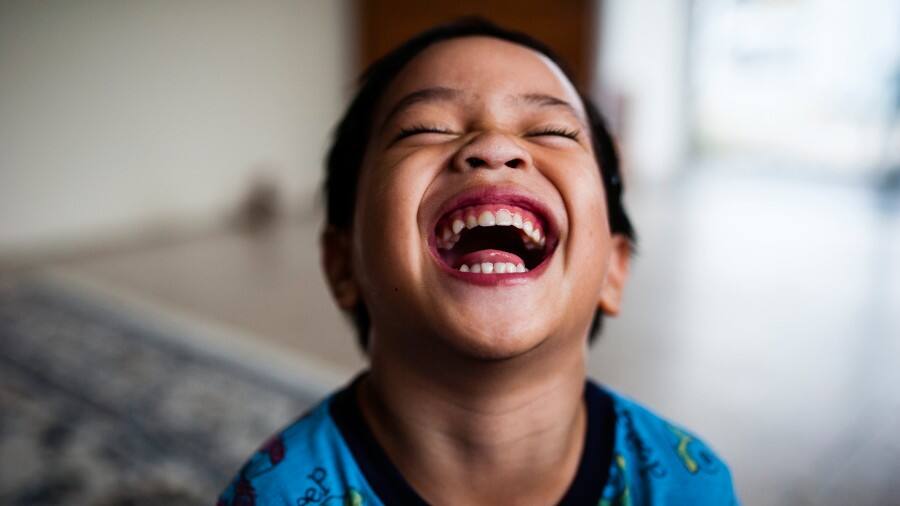
Do you remember losing your first tooth? Consider using a tooth fairy pillow for your child to place their lost teeth in. Learn more here.


Related Products

Helping dental professionals
More professionals across the world trust Colgate. Find resources, products, and information to give your patients a healthier future




